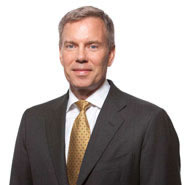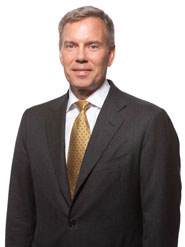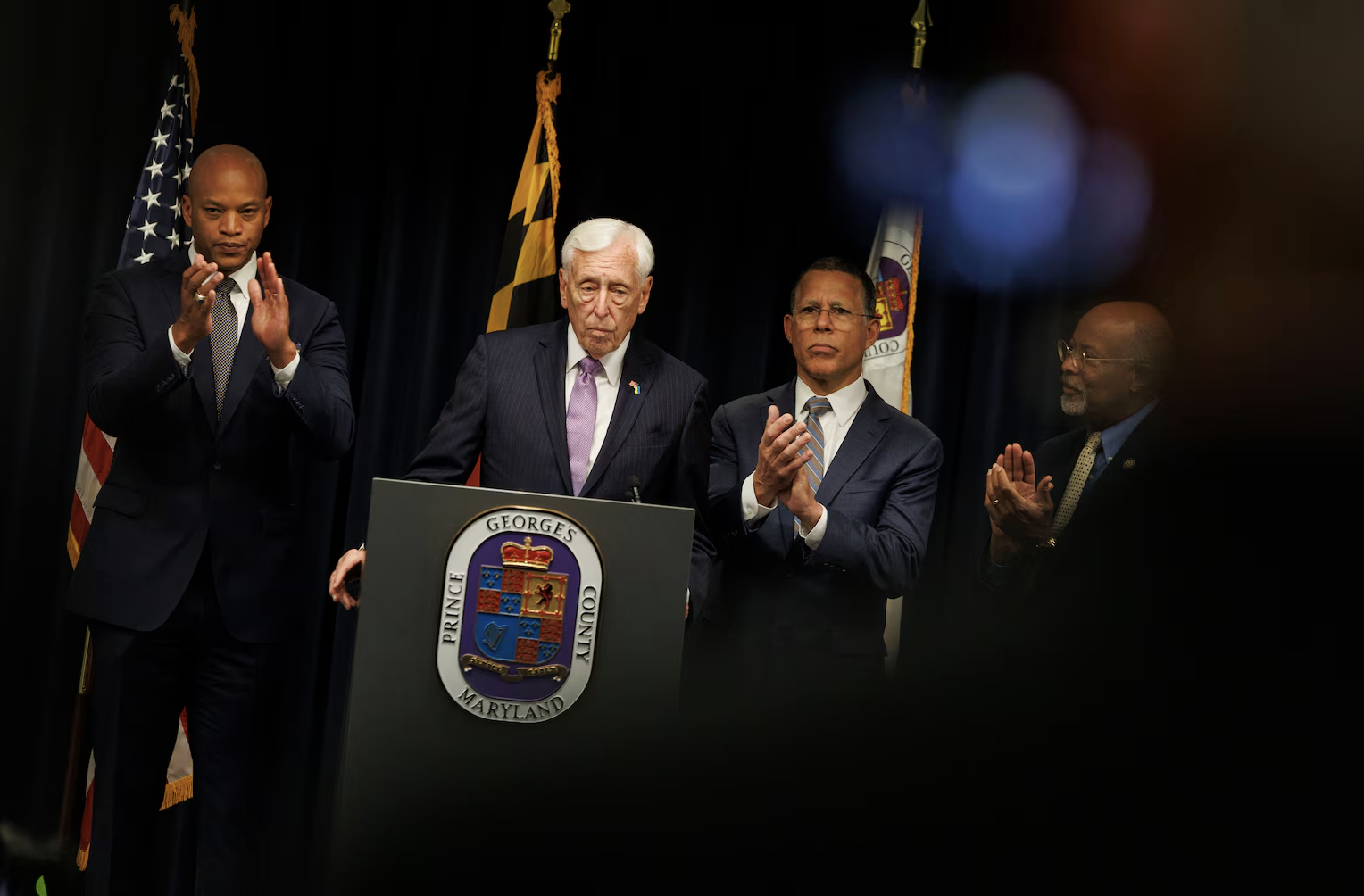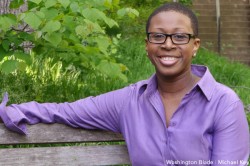Local
Who paid for Task Force mailer on gambling?
LGBT group wades into Md. gaming debate, triggering reports of links to casinos and GOP strategists


Sources linked DCI Group’s Tom Synhorst — a gay Republican strategist — to an expensive mailer from the Task Force Action Fund critical of a proposed gambling expansion in Maryland. (Photo courtesy DCI)
As the dust settles over the Maryland General Assembly’s approval on Aug. 15 of a controversial bill to increase the number of casinos operating in the state, some political insiders say the National Gay and Lesbian Task Force appears to have taken the unusual step of accepting money from gambling interests to campaign against the bill.
The Task Force last month announced it opposed taking up the bill this year, noting it would trigger a voter referendum on gambling that likely would motivate more conservative, religious voters to turn out to vote against both gambling and the state’s same-sex marriage law, which is also on the November ballot in a referendum.
Earlier this month, the National Gay & Lesbian Task Force Action Fund mailed an expensive tri-fold flier to thousands of Maryland households asking residents to urge their state representatives to vote “no” on the gambling bill. The mailer was likely part of the first round of an expected fierce campaign in which gambling and marriage equality may become entangled, sources familiar with the two issues told the Blade.
The sources, who spoke on condition that they not be identified, said the Task Force Action Fund mailer raised eyebrows among many political observers in Maryland, including officials in the administration of Gov. Martin O’Malley, who introduced the gambling bill. Sources estimated the mailer cost well over $100,000.
“I know for a fact that the Task Force didn’t pay for it — a single, anonymous contributor paid for it,” said one of the sources.
Others familiar with the situation say they believe one or more of the five casinos already authorized to operate in the state and that stand to lose business from a sixth casino that the bill authorizes most likely paid for the mailer.
These sources note that Monique Hall, a member of the Task Force Action Fund board of directors, is a vice president for the DCI Group, a Republican-leaning political consulting firm that the sources say has been retained by one of the Maryland casinos to campaign against the gambling bill.
The sources believe one of the casinos paid for the mailing directly or reimbursed the DCI Group, which in turn paid the Task Force Action Fund for the mailing.
One of the sources said the Cordish Company, a national conglomerate that operates casinos in Las Vegas and throughout the country, including a casino located just south of Baltimore, is a client of DCI Group and may have been the source of the money used to pay for the mailer. The Blade could not independently confirm that Cordish is a DCI client. There are other gaming companies operating in Maryland that oppose the expansion, including Penn National Gaming, which owns 20 casinos throughout the nation, including Hollywood Casino of Perryville, Md.
The Task Force has declined to disclose the source of the money used to prepare and pay for the mailer.
“We do not have a position on gambling, but rather on marriage equality,” said Task Force Deputy Executive Director Darlene Nipper in a statement.
“The purpose of the marriage equality mailer, funded by the Task Force Action Fund, which like other nonprofits includes many donors, some named and some who are not, is to get marriage equality over the finish line,” Nipper said. “It was sent to a portion of registered Democratic households in Maryland.”
The mailer states, “If the gaming bill is on the ballot, opponents are likely to spend millions identifying and turning out voters who don’t like gambling…and who also don’t like Marriage Equality! So all the ‘no’ votes on gaming could also be ‘no’ votes for us.”
The mailer added, “The best thing that can happen – to give us a fair shot at winning on the ballot in November – is for the legislature to put gaming aside till next year and let the marriage issue proceed without complications.” The Task Force Action Fund is a 501c(4) nonprofit and contributions made to it are not tax deductible.
The Task Force did not directly answer when asked if it has made financial contributions to the Maryland referendum fight, but two knowledgeable sources said the Task Force has not made cash donations to the effort.
“We have provided staff resources specifically to advance marriage equality in Maryland,” said Nipper in an emailed statement. She also noted that the Task Force held its annual Creating Change conference in Baltimore earlier this year and that O’Malley spoke to attendees. Task Force executive director Rea Carey is on sabbatical and unavailable for comment.
Speculation over who could have paid for the Task Force Action Fund mailer has centered on Tom Synhorst, a gay Republican strategist and founder and chair of the DCI Group, which bills itself on its website as a public affairs company that “helps corporations navigate their most challenging political, legislative and regulatory problems anywhere in the world.”
Monique Hall, the DCI Group vice president and the Task Force Action Fund board member, did not respond to Blade inquires. A receptionist at DCI initially refused to take a message for Synhorst on Aug. 17 and declined to transfer a Blade reporter’s call into Synhorst’s voicemail. Another receptionist did take a message when the Blade called back on Monday, but Synhorst did not immediately respond.
DCI doesn’t disclose its client list on its website, but two sources with knowledge of the Task Force mailer said DCI has gaming clients, including possibly the Cordish Company.
Carmen Gonzales, a spokesperson for Maryland Live! Casino said Cordish has no immediate comment on any of the issues surrounding the approval of a sixth casino for Prince George’s County, including the Task Force mailer, except for this statement:
“Maryland Live! is, and will continue to be, the premier casino entertainment destination in the region. In the next few months, Live! will open new world-class dining and entertainment amenities, including the Prime Rib and Rams Head Center Stage.”
One political observer familiar with Maryland gambling rivalries, speaking on condition of anonymity, speculates that the existing casinos in the state that oppose the opening of a new casino “will create new or use existing faith-based organizations to front their campaign, arguing that gambling is morally wrong.”
Other observers familiar with Synhorst and the DCI Group say DCI has a history of creating front groups to wage battles in political campaigns.
Synhorst has a long record of working for Republican political candidates, including former Sen. Robert Dole (R-Kan.), former Gov. Mike Huckabee (R-Ark.), and former Presidents George Walker Bush and George W. Bush.
DCI has been involved with “the creation of several front groups for the Bush administration and telecommunications, pharmaceutical and computer industries,” according to SourceWatch, which is published by the Center for Media and Democracy.
SourceWatch noted that the Associated Press reported in June 2001 that Synhorst “has been linked to South Carolina ‘push polls’ in the 2000 Republic primary that attacked candidate John McCain as ‘a cheat, a liar and a fraud,’ according to the Democratic Senatorial Campaign Committee.”
The Center for Media and Democracy added, “DCI and its affiliates offer ‘direct contact’ that bypasses the media entirely. The client’s message is directly delivered via phone banks, regular mail and/or the internet. Direct contact provides the campaigns with complete control over the message. Freed from the filters created by news outlets, they can be as biased and inflammatory as the message shaper deems necessary.”
Will gaming push derail marriage?
On Aug. 15, the General Assembly passed the gambling bill, with the House of Delegates approving it by a vote of 71-58 and the State Senate approving by a margin of 32-14.
Six of the eight openly gay or lesbian members of the General Assembly voted for the bill, citing arguments by proponents, including O’Malley, that the measure would generate an additional $174 million a year in revenue for the state. O’Malley said most of the revenue would be used to fund state education programs.
The gambling measure was drafted to include a provision requiring that it must come up before voters in the November election if the General Assembly passes it.
Meanwhile, earlier in the year, opponents of same-sex marriage obtained the required number of petition signatures needed to place on the November ballot a same-sex marriage law that the General Assembly passed and O’Malley signed in February.
Same-sex marriage advocates have expressed conflicting views over whether a gambling referendum would hurt chances for upholding the same-sex marriage law if both referenda were on the ballot at the same time. The marriage law has been on hold pending the outcome of the November referendum.
The Task Force, among other LGBT advocates, says a gambling referendum is likely to encourage a greater number of conservative, religious-oriented voters to go to the polls who oppose both gambling and marriage equality.
Other advocates, including Josh Levin, campaign manager of Marylanders for Marriage Equality, the organization leading the campaign to uphold the same-sex marriage law, say a gambling referendum would have no impact on the marriage equality vote.
“We’ve been looking at this carefully for a long time and we have yet to see any data that suggests there are any voters who would come out in the election because of the gaming initiative who were not already going to be out for a presidential election or to vote on the question of marriage equality,” Levin told the Blade.
Levin said he bases his assertion on private polls and focus groups commissioned by Marylanders for Marriage Equality.
At least one pollster sympathetic to LGBT equality, who asked not to be identified, said Levin’s assessment may not be correct.
“I don’t think a gambling ballot measure by itself will generate a greater turnout,” the pollster said. “But the Cordish Company is likely to spend millions to bring out anti-gambling voters … You are injecting a huge unknown factor if you put gambling on the ballot.”
The bill authorizes the state to expand the number of casinos allowed to operate in Maryland from five to six, with the sixth site to be located in Prince George’s County, most likely in the county’s National Harbor complex located near D.C.
O’Malley says the expansion would result in an additional $174 million a year in revenue when all six casinos are fully operational in 2017.
The five existing casinos approved for other locations in the state raised strong objections to O’Malley’s proposal, saying another casino in P.G. County would draw away patrons from the other five casinos.
Among the strongest opponents of the O’Malley proposal is the Cordish Companies. Cordish just opened its Maryland Live! Casino and entertainment complex at Arundel Mills just south of Baltimore. Observers say the Maryland Live! Casino would be impacted the most by a P.G. County casino because it’s the closest among the five casinos approved to operate in Maryland to the P.G. site.
Lessons from Ohio fight
Gambling industry observers say a furious battle between rival casinos in a 2008 Ohio voter referendum on whether a new casino should be allowed in the state might be a predictor of things to come in Maryland this year.
Known as Ballot Issue 6, Ohio voters were asked to decide whether Lakes Entertainment, a large casino owner, should be allowed to open a new casino in Ohio located 30 miles from an existing casino in Indiana owned by rival Penn National Gaming. Penn National reportedly put up $38 million to fund the “No on 6” committee compared to at least $26 million spent by Lakes Entertainment for the campaign in support of the casino.
Ohio voters ultimately defeated the proposal to build the new casino, with large numbers of conservative voters believed to have turned out to vote no.
The Task Force mailer included quotes from three commentaries critical of O’Malley’s push to expand gambling in the state published by the Washington Post, the Washington Blade, and the blog Care2.com. The Post piece was written by gay commentator Jonathan Capehart; the Blade’s was written by editor Kevin Naff.
The gay and lesbian legislators voting for the gambling bill were Sen. Rich Madaleno (D-Montgomery County) and Delegates Luke Clippinger (D-Baltimore City), Bonnie Cullison (D-Montgomery County), Anne Kaiser (D-Montgomery County), Maggie McIntosh (D-Baltimore City) and Mary Washington (D-Baltimore City). The gay and lesbian delegates voting against the bill were Peter Murphy (D-Charles County) and Heather Mizeur (D-Montgomery County).
Virginia
Gay Va. State Sen. Ebbin resigns for role in Spanberger administration
Veteran lawmaker will step down in February

Alexandria Democrat Adam Ebbin, who has served as an openly gay member of the Virginia Legislature since 2004, announced on Jan. 7 that he is resigning from his seat in the State Senate to take a job in the administration of Gov.-Elect Abigail Spanberger.
Since 2012, Ebbin has been a member of the Virginia Senate for the 39th District representing parts of Alexandria, Arlington, and Fairfax counties. He served in the Virginia House of Delegates representing Alexandria from 2004 to 2012, becoming the state’s first out gay lawmaker.
His announcement says he submitted his resignation from his Senate position effective Feb. 18 to join the Spanberger administration as a senior adviser at the Virginia Cannabis Control Authority.
“I’m grateful to have the benefit of Senator Ebbin’s policy expertise continuing to serve the people of Virginia, and I look forward to working with him to prioritize public safety and public health,” Spanberger said in Ebbin’s announcement statement.
She was referring to the lead role Ebbin has played in the Virginia Legislature’s approval in 2020 of legislation decriminalizing marijuana and the subsequent approval in 2021of a bill legalizing recreational use and possession of marijuana for adults 21 years of age and older. But the Virginia Legislature has yet to pass legislation facilitating the retail sale of marijuana for recreational use and limits sales to purchases at licensed medical marijuana dispensaries.
“I share Governor-elect Spanberger’s goal that adults 21 and over who choose to use cannabis, and those who use it for medical treatment, have access to a well-tested, accurately labeled product, free from contamination,” Ebbin said in his statement. “2026 is the year we will move cannabis sales off the street corner and behind the age-verified counter,” he said.
Maryland
Steny Hoyer, the longest-serving House Democrat, to retire from Congress
Md. congressman served for years in party leadership

By ASSOCIATED PRESS and LISA MASCARO | Rep. Steny Hoyer of Maryland, the longest-serving Democrat in Congress and once a rival to become House speaker, will announce Thursday he is set to retire at the end of his term.
Hoyer, who served for years in party leadership and helped steer Democrats through some of their most significant legislative victories, is set to deliver a House floor speech about his decision, according to a person familiar with the situation and granted anonymity to discuss it.
“Tune in,” Hoyer said on social media. He confirmed his retirement plans in an interview with the Washington Post.
The rest of this article can be found on the Baltimore Banner’s website.
District of Columbia
Kennedy Center renaming triggers backlash
Artists who cancel shows threatened; calls for funding boycott grow

Efforts to rename the Kennedy Center to add President Trump’s name to the D.C. arts institution continue to spark backlash.
A new petition from Qommittee , a national network of drag artists and allies led by survivors of hate crimes, calls on Kennedy Center donors to suspend funding to the center until “artistic independence is restored, and to redirect support to banned or censored artists.”
“While Trump won’t back down, the donors who contribute nearly $100 million annually to the Kennedy Center can afford to take a stand,” the petition reads. “Money talks. When donors fund censorship, they don’t just harm one institution – they tell marginalized communities their stories don’t deserve to be told.”
The petition can be found here.
Meanwhile, a decision by several prominent musicians and jazz performers to cancel their shows at the recently renamed Trump-Kennedy Center in D.C. planned for Christmas Eve and New Year’s Eve has drawn the ire of the Center’s president, Richard Grenell.
Grenell, a gay supporter of President Donald Trump who served as U.S. ambassador to Germany during Trump’s first term as president, was named Kennedy Center president last year by its board of directors that had been appointed by Trump.
Last month the board voted to change the official name of the center from the John F. Kennedy Memorial Center For The Performing Arts to the Donald J. Trump And The John F. Kennedy Memorial Center For The Performing Arts. The revised name has been installed on the outside wall of the center’s building but is not official because any name change would require congressional action.
According to a report by the New York Times, Grenell informed jazz musician Chuck Redd, who cancelled a 2025 Christmas Eve concert that he has hosted at the Kennedy Center for nearly 20 years in response to the name change, that Grenell planned to arrange for the center to file a lawsuit against him for the cancellation.
“Your decision to withdraw at the last moment — explicitly in response to the Center’s recent renaming, which honors President Trump’s extraordinary efforts to save this national treasure — is classic intolerance and very costly to a non-profit arts institution,” the Times quoted Grenell as saying in a letter to Redd.
“This is your official notice that we will seek $1 million in damages from you for this political stunt,” the Times quoted Grenell’s letter as saying.
A spokesperson for the Trump-Kennedy Center did not immediately respond to an inquiry from the Washington Blade asking if the center still planned to file that lawsuit and whether it planned to file suits against some of the other musicians who recently cancelled their performances following the name change.
In a follow-up story published on Dec. 29, the New York Times reported that a prominent jazz ensemble and a New York dance company had canceled performances scheduled to take place on New Year’s Eve at the Kennedy Center.
The Times reported the jazz ensemble called The Cookers did not give a reason for the cancellation in a statement it released, but its drummer, Billy Hart, told the Times the center’s name change “evidently” played a role in the decision to cancel the performance.
Grenell released a statement on Dec. 29 calling these and other performers who cancelled their shows “far left political activists” who he said had been booked by the Kennedy Center’s previous leadership.
“Boycotting the arts to show you support the arts is a form of derangement syndrome,” the Times quoted him as saying in his statement.
-

 District of Columbia4 days ago
District of Columbia4 days agoTwo pioneering gay journalists to speak at Thursday event
-

 Colombia4 days ago
Colombia4 days agoBlade travels to Colombia after U.S. forces seize Maduro in Venezuela
-

 a&e features4 days ago
a&e features4 days agoQueer highlights of the 2026 Critics Choice Awards: Aunt Gladys, that ‘Heated Rivalry’ shoutout and more
-

 National3 days ago
National3 days agoWhat to watch for in 2026: midterms, Supreme Court, and more



















